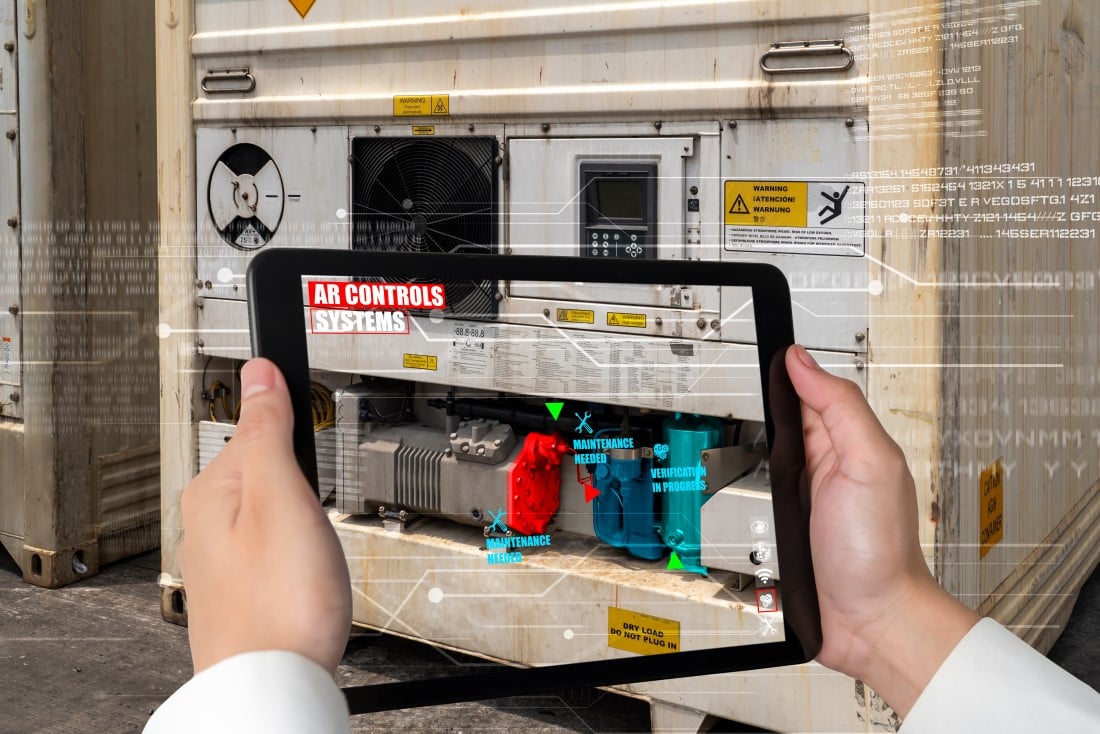Why You Need Augmented Reality in the Field Services
Augmented Reality is increasingly being adopted across the field service industry. With customers demanding better remote self-service options, and...

The field service industry has transformed drastically over the course of the pandemic, with technology playing a larger role in service delivery than ever before. Seeing as field service technicians are at the core of service delivery, this means that their role has adapted to rely much more heavily on technology. Staying up to date with these changes in industry technology is critical for field service technicians and the field service providers that employ technicians.
This blog post will cover what a field service technician does, explain the main influences that are changing the role of field service technicians in the post-pandemic field service industry, and offer actionable advice for adapting to these changes.
A field service technician is a professional in the field service industry that is responsible for helping customers install, repair, and maintain equipment. While the day-to-day responsibilities of a field service technician vary based on each service job, the core activities include troubleshooting equipment, advising customers on best practices for use, and following company procedures in the field.
With the onset of the pandemic, there has been an added layer of stress associated with in-person interactions both personal and professional. However, customers quarantined at home have been more reliant on home systems and devices, and those devices still need to be serviced and repaired.
By leveraging technology, field service organizations have been able to continue providing seamless service to their customers while mitigating the additional stress of in-person interactions whenever possible. However, this means that field service technicians can no longer rely on the tried and true methods of manual service and must adapt to these modern methods in order to provide the type of service that customers now expect. This has drastically changed the role of the field service technician, requiring a stronger knowledge of and ability to navigate this digital landscape.
The main technologies that have changed the role of the field service technician include field service applications, the reliance on mobile technology, and the Internet of Things (IoT).
As the most basic and necessary of technologies, field service applications have immensely changed the foundation of service delivery. Moreover, they have altered the way field service technicians interact with their scheduling, dispatching, and payroll operations. Not to mention, field service apps can now act as an interface for real-time and two-way communication with customers and enable media uploads regarding service issues.
During the pandemic this served to alleviate the stress around the timing of service appointments, enabling technicians and customers to communicate directly about service times and expectations. In addition, it helped prevent repeat in-person services, ensuring that technicians had access to the necessary photos and videos of a service issue so as to bring the correct tools and parts to each job.
This reliance on a field service application for daily operational knowledge as well as customer communication has created a need for field service technicians to be proficient in mobile application technology. Moreover, a field service application with a complicated User Interface (UI) and User Experience (UX) filled with friction now yields the power to make a field service technician’s job difficult and confusing.
For that reason, field service providers should be intentional about selecting intelligent and intuitive field service applications that make field technicians' jobs easier- not more complicated. Likewise, this will help technicians access the information they need exactly when they need it and can foster a more positive experience for customer communication.
As consumer appliances and entertainment systems are increasingly equipped with smart capabilities and IoT technology, field service companies have had to adapt to these changes. In fact, predictive maintenance fueled by IoT technology has become a top trend in the field service industry in 2021 with 67% of field service organizations believing that it’s beneficial to offer IoT-powered predictive maintenance services.
With the onset of the pandemic and quarantines over the past year, customers have become increasingly reliant on their home appliances and systems. However, they don’t want to deal with unplanned downtime and lengthy repairs for these critical devices and are more interested in smart home devices than ever before. For instance, in 2021, 7 in 10 homebuyers are looking for a smart home, and 78% are willing to pay more for a home with smart devices. In addition to new home buyers, in 2021 2 in 3 Americans desired a smart home device in response to the quarantines over the past year. This increasingly important trend has impacted how field technicians provide service and interact with their customers in 2021.
It’s no longer sufficient for field technicians to show up for a service job and troubleshoot the issue in person. Field service technicians now need to understand how to provide predictive maintenance services for their customers leveraging smart home technology. This includes knowing how to set performance parameters for customer’s smart devices, monitoring the data remotely, and translating that data into actionable field service processes. By mastering these tech-heavy skills, field service technicians can set themselves up for success in the increasingly digital business landscape. This not only benefits field service technicians themselves but also increases the value of field service organizations by providing improved customer experiences.
Summary
With the coronavirus pandemic expediting the digital transformation in the field service industry, there is now more demand for seamless and effective customer experiences fueled by technology. By adopting field service applications and predictive maintenance services, field service companies are strategically trying to meet this increased demand. To this extent, the role of a field service technician has expanded to include technological skill sets such as:
For field service technicians, this means brushing up on technological skills to stay up to date with these industry trends. And for field service organizations, this means adopting intelligent technology that is up to the challenge.
Interested in upgrading your field service management? Try ServicePower's intelligent field service management suite and stay up to date with industry trends.

Augmented Reality is increasingly being adopted across the field service industry. With customers demanding better remote self-service options, and...

The Internet of Things (IoT) is expanding at near light speed as the breadth of new smart home devices hits the market. It is estimated that there...

The field service industry is rapidly changing as the digital transformation renders manual field service processes and workflows obsolete. Staying...